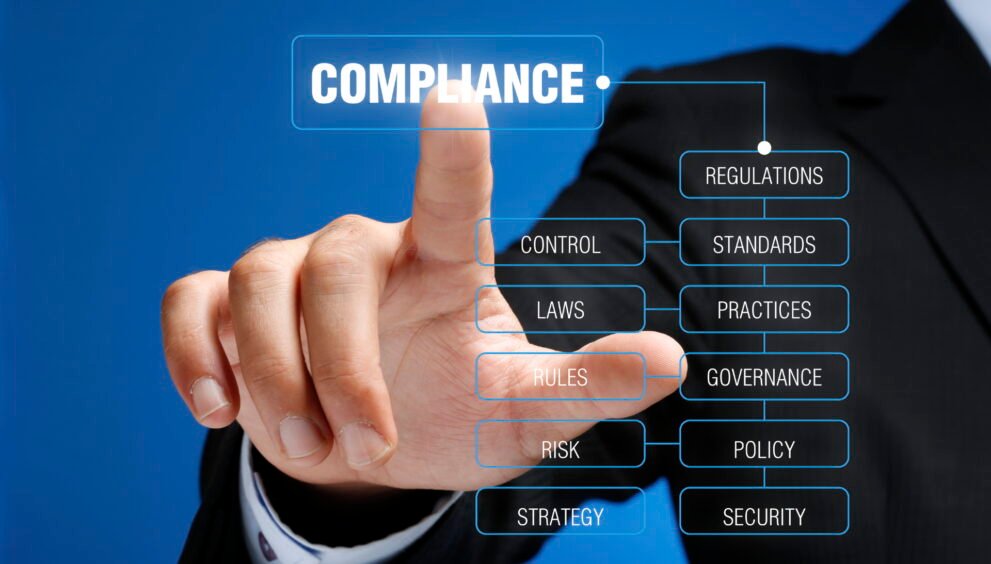Legal and Regulatory Implications of Data Breaches: Compliance and Consequences

Introduction
A data breach can lead to serious legal and regulatory problems for organizations. This article explains the key rules organizations must follow to avoid these issues and the consequences of failing to comply with data breach laws.
Overview of Data Breach Laws and Regulations
Data breaches are a major concern for businesses today, and understanding the laws around them is crucial to avoid fines and protect sensitive information. Here’s a quick look at the key laws and regulations:
- Data Protection Laws: Many countries have laws to protect personal data. For example, the European Union’s General Data Protection Regulation (GDPR) requires businesses to report breaches within 72 hours. Not adhering to these laws can result in substantial penalties.
- Industry-Specific Rules: Some industries, like healthcare and finance, have their own regulations. For instance, the Health Insurance Portability and Accountability Act (HIPAA) mandates that healthcare organizations safeguard patient data. Failure to adhere to these regulations can lead to significant penalties.
- Cybersecurity Standards: In addition to legal requirements, businesses are expected to follow cybersecurity best practices, such as data breach prevention and secure notification processes. Adhering to these standards shows a company’s commitment to data security.
“Data breaches can lead to significant repercussions for both companies and individuals. Understanding the laws and regulations surrounding data breaches is imperative to ensure compliance and protect sensitive information.” (Quote from cybersecurity expert)
Federal, State and International Regulations
Data breach laws vary depending on where your organization operates. Here’s a breakdown:
Federal Regulations:
- HIPAA: Protects healthcare data.
- Gramm-Leach-Bliley Act (GLBA): Requires financial institutions to protect customers’ personal information.
- COPPA: Applies to websites that collect data from children under 13.
State Regulations:
- California Consumer Privacy Act (CCPA): Gives California residents more control over their personal data.
- New York SHIELD Act: Requires businesses to strengthen data security and notify residents of a breach.
- Massachusetts Data Security Law: Demands that businesses implement security programs to protect Massachusetts residents’ data.
International Regulations:
- GDPR: Enforces strict data protection rules for organizations handling the personal data of EU citizens.
- APEC Privacy Framework: Provides guidelines for data protection and cross-border data transfers among Asia-Pacific countries.
You May Also Like: Educating Corporate Clients About Compliance Changes Through Email
Compliance Requirements for Data Breaches
Data breaches can have serious legal and regulatory implications for businesses. It is crucial to understand the compliance requirements surrounding data breaches in order to mitigate potential consequences. Here are several important factors to keep in mind:
To avoid legal trouble, businesses must meet certain compliance standards when handling data breaches:
- Know the Laws: Understand the data protection laws like GDPR, CCPA, and HIPAA that apply to your organization.
- Have an Incident Response Plan: Develop a clear plan for detecting, responding to, and reporting data breaches.
- Data Breach Notifications: Be prepared to quickly notify affected individuals and regulatory authorities when a breach happens.
- Record Keeping: Keep detailed records of any data breach, including when it occurred and how it was handled. This is important for audits and investigations.
Data Security Requirements
To prevent data breaches, businesses must have strong security measures in place:
- Encryption: Use strong encryption methods to protect sensitive data both in storage and during transmission.
- Access Control: Restrict access to sensitive information to only those who require it. Use techniques like two-factor authentication and regular access reviews.
- Employee Training: Train employees on how to recognize phishing attempts, handle data securely, and follow proper security protocols.
- Incident Response: Ensure your organization has a tested plan for dealing with data breaches quickly and effectively.
Data Security Requirements
To prevent data breaches, businesses must have strong security measures in place:
- Encryption: Use strong encryption methods to protect sensitive data both in storage and during transmission.
- Access Control: Limit access to sensitive data to only those who need it. Use techniques like two-factor authentication and regular access reviews.
- Employee Training: Train employees on how to recognize phishing attempts, handle data securely, and follow proper security protocols.
- Incident Response: Ensure your organization has a tested plan for dealing with data breaches quickly and effectively.
Data Retention and Destruction
Organizations must handle data carefully both when storing and when deleting it:
- Retention Policies: Create clear rules on how long to keep different types of data. Some laws require data to be stored for a certain amount of time.
- Secure Storage: Make sure data is kept securely, protected by encryption and access controls.
- Destruction: When data is no longer needed, securely destroy it to prevent unauthorized access.
Consequences of Non-Compliance with Data Breach Regulations
Non-compliance with data breach regulations can have serious implications for organizations, leading to various consequences. It is crucial for businesses to understand and abide by the legal and regulatory requirements related to data breaches in order to avoid these potential repercussions. Here are some key consequences of non-compliance:
- Failing to comply with data breach laws can have serious consequences for businesses:
- Fines: Authorities can impose large fines for not following data breach laws, which can be especially damaging for smaller businesses.
- Reputational Damage: A breach can damage your company’s reputation. Customers may lose trust in your ability to protect their data.
- Loss of Customers: When customers lose confidence in your data protection practices, they may take their business elsewhere.
- Legal Action: Customers or other parties affected by a breach may sue your business for damages.
- Increased Scrutiny: Non-compliance can lead to more frequent audits and stricter monitoring by regulatory authorities.
Tips for Staying Compliant
To protect your business and avoid penalties, follow these best practices:
- Understand the Laws: Keep up to date with data protection regulations in your region and industry.
- Implement Strong Security: Use encryption, access controls, and regular audits to secure data.
- Regular Risk Assessments: Periodically check for vulnerabilities in your systems and address them.
- Incident Response: Have a clear, documented plan in place for how to respond to data breaches.
- Employee Training: Educate employees on data protection practices and how to spot potential security threats.
- Monitor and Update Security: Continuously monitor your systems and update security software to stay ahead of threats.
Monitor for Breaches Regularly
- Use Intrusion Detection and Prevention Systems (IDS/IPS): These tools help detect and block unauthorized access to your network. They analyze network traffic, identify suspicious activity, and send alerts if something unusual is happening.
- Conduct Regular Vulnerability Scans: Regularly check your systems for weaknesses that could be exploited by hackers. Fix any issues you find to stay ahead of potential security threats.
- Use Security Information and Event Management (SIEM) Tools: SIEM tools collect and analyze security logs from your network to spot any unusual activity. These tools help you detect patterns that might indicate a breach, allowing you to respond quickly.
- Keep Software Up-to-Date: Make sure to apply security patches and updates to your software and hardware as soon as they’re available. These updates often fix known vulnerabilities and help prevent breaches.
- Train Employees on Security: Educate your team about security best practices, like recognizing phishing attempts or how to securely handle data. Regular training helps everyone stay alert and reduces the chances of a breach happening due to human error.
Conclusion
Understanding the legal and regulatory implications of data breaches is essential for any organization handling sensitive information. By following the proper laws, setting up strong security measures, and having a clear response plan, businesses can protect their data and avoid costly consequences. Prioritize compliance and data security to build trust with your customers and ensure long-term success.



































































































































































































































